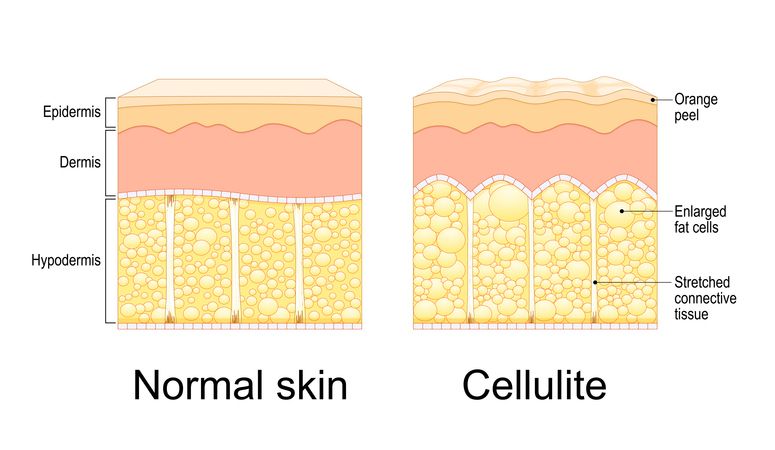
Author: Natalie Ng|Updated: 5 June 2025
Fat transfer breast augmentation is becoming a go-to option for people who want a more natural way to enhance their breast size and shape. Instead of relying on silicone implants, this method uses your own body fat, taken from areas like the stomach, thighs, or hips to gently inject them into the breasts. This results in softer, more natural-looking breasts that feel like your own tissue. This method appeals to those who want subtle, customizable results without the long-term concerns that can come with traditional implants. There's no other material involved, greatly lowering the risk of issues like capsular contracture or implant replacement. Plus, since fat is removed from other parts of your body, you get a bit of sculpting in the process. Whether you're looking to restore lost volume after weight changes, want a breast lift without going too big, or simply prefer a more natural feel, fat transfer may be what you are looking for. If you're curious about how it stacks up against silicone implants, keep reading—we’ll walk you through the benefits that set this technique apart.

Fat Transfer Breast Augmentation Benefit 1: Natural Look and Feel of Results
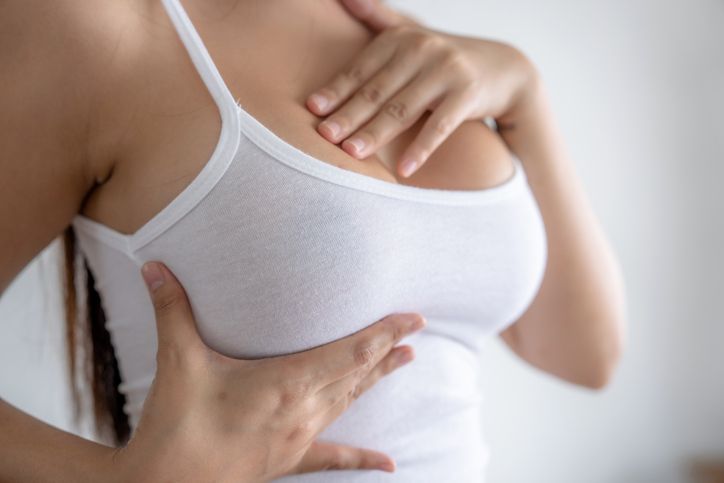
Your Own Fat Feels More Like Real Breast Tissue
Fat transfer breast augmentation uses your own fat, usually taken from areas like your stomach, hips, or thighs. This fat is gently injected into the breasts to increase breast volume without using silicone implants. Because the procedure relies on natural tissue, the results feel soft and more like your original breast tissue.
No Sharp Edges or Unnatural Texture
Unlike silicone implants, fat grafting doesn’t create a hard edge or cause visible rippling. The fat blends with your existing tissue, so your breasts look and feel more seamless. There’s no gap between the skin and the added volume, and the shape adjusts naturally with your movement.
Movement Feels Natural Too
Fat transfer breast augmentation allows the breasts to move naturally with your body. Since the fat cells become part of your own tissue, your breasts respond to changes in position just like they did before the procedure. This can be especially helpful for people with low soft tissue coverage or those looking to correct breast shape after weight loss, a previous boob job, or breast cancer surgery.
The natural feel and motion make this method a strong option for anyone looking for subtle but lasting breast enhancement.

Fat Transfer Breast Augmentation Benefit 2: Two-in-One Body Contouring Benefits
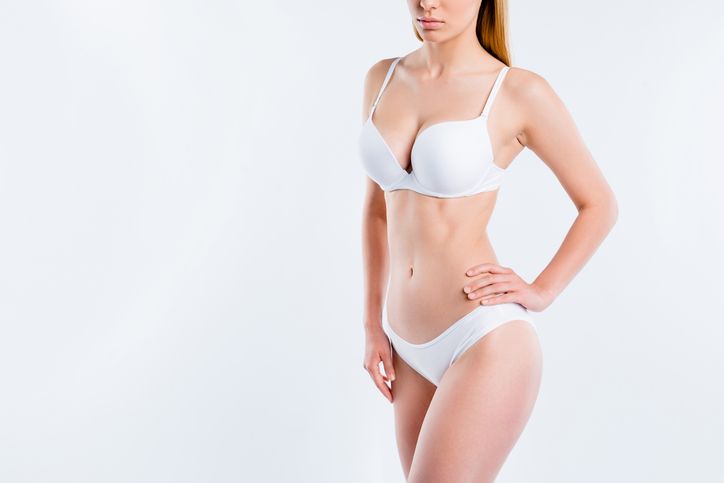
Fat Removal and Breast Enhancement in One Procedure
Fat transfer breast augmentation offers more than just an increase in breast size—it also reshapes other areas of your body using fat grafting techniques. During the procedure, your plastic surgeon removes unwanted body fat from areas like the abdomen, thighs, hips, or flanks. This harvested fat is then purified and carefully injected into your breasts to create fuller, more natural contours.
This approach allows you to improve breast volume and body proportions at the same time. Unlike breast implants, which focus only on the chest area, fat transfer helps balance your whole silhouette by targeting areas with stubborn fat while enhancing breast shape with your own tissue.
Where Fat Is Commonly Taken From
Fat is usually harvested from areas where it tends to collect and can be safely removed without affecting muscle or skin function. Common donor sites include:
• Abdomen and flanks, which help slim your waist and improve your midsection
• Inner and outer thighs, for smoother transitions between your upper and lower body
• Hips and lower back, to reduce bulk and enhance your natural curves
• Bra roll area and upper arms, for a more contoured upper body
This gives you the flexibility to improve the areas that matter most to you while achieving a more refined shape overall.
Visible Changes in Multiple Areas
Unlike traditional breast augmentation surgery, which only addresses cup size or shape, fat transfer also delivers visible changes to areas you’ve been wanting to slim down. It smooths bulges, softens transitions between body zones, and can help you feel more proportionate. This makes it a popular option for those who want a more complete transformation without undergoing separate procedures.
The two-in-one benefit of fat transfer procedure not only saves time and recovery effort, but it also gives more natural-looking results across your body—from donor sites to your augmented breast.
Read More
Book Now to Experience
B6 Breast Enhancement Treatment
1 Minute Self-Registration
Date should not be before minimal date

Fat Transfer Breast Augmentation Benefit 3: No Risk of Implant Complications
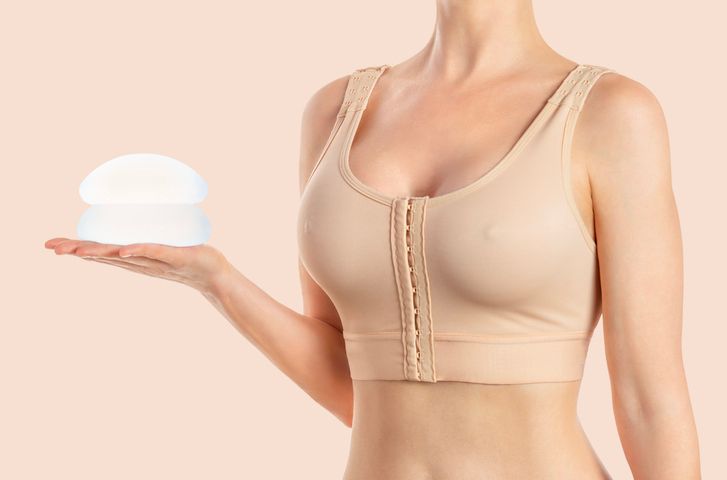
No Silicone, No Implant Failures
Fat transfer breast augmentation removes the need for breast implants, which means you won’t face complications like capsular contracture, implant rupture, or rippling. Since the procedure relies on your own fat cells, there’s no risk of implant-related issues such as shifting, leakage, or hardening over time.
This approach appeals to those who want to avoid synthetic materials and the ongoing maintenance that implants may require. Many people feel more at ease knowing their breast enhancement comes entirely from their own tissue.
Fewer Foreign Body Reactions
Because fat grafting surgery doesn’t involve silicone gel or other medical devices, the risk of your body rejecting the material is extremely low. The transferred fat is recognized as your own tissue, so there’s no immune response or allergic reaction. You also avoid long-term concerns like implant displacement or pressure on the chest muscle and surrounding breast tissue.
Natural Tissue Still Requires Proper Healing
Although fat transfer avoids implant complications, it isn’t without its own risks. A portion of the transferred fat may not survive, which can lead to a small reduction in breast volume over time. Some patients may notice firmness or small lumps if fat cells are not evenly distributed or if free oil forms during breakdown. In rare cases, minor calcification or cyst formation may occur.
Careful surgical technique, good blood supply, and proper post surgery care help improve fat graft survival. Following your plastic surgeon’s guidance—like maintaining blood circulation, avoiding pressure on the area, and getting adequate rest—can support a smoother recovery and longer-lasting results.

Fat Transfer Breast Augmentation Benefit 4: Minimal Scarring and Incisions

Smaller Openings Mean Less Visible Scars
Fat transfer breast augmentation involves tiny entry points rather than the longer incisions required for implant placement. These small punctures are used for both fat harvest and injection, meaning there's no need for large cuts beneath the breast, around the areola, or in the underarm.
Because the incisions are so small, they usually heal into faint marks that are hard to detect. Your plastic surgeon will also place them in natural folds or less noticeable areas, reducing the chance of visible scar tissue.
No Implant Pocket, No Extensive Cutting
Traditional breast augmentation surgery requires creating a pocket in the breast tissue or under the chest muscle to insert the implant. This process leaves more noticeable scars and puts more stress on the tissue. In contrast, fat transfer avoids this step completely. There’s no internal stretching, cutting, or stitching required to hold a medical device in place.
Instead, the fat is gently injected in small amounts using a fine cannula, which spreads it evenly and minimizes trauma to surrounding tissue. This technique lowers the risk of excessive bleeding or the formation of keloids and thickened scars.
Less Scarring Also Supports Faster Healing
Because the body doesn’t have to recover from large incisions, healing tends to be quicker and smoother. The tiny scars fade over time and are often barely visible after full recovery. For people concerned about lasting incision marks—especially those with darker skin tones who may be prone to hyperpigmentation—this makes fat transfer an appealing option.
Book Now to Experience
B6 Breast Enhancement Treatment
1 Minute Self-Registration
Date should not be before minimal date

Fat Transfer Breast Augmentation Benefit 5: Shorter Recovery Time

Quicker Healing from Smaller Incisions
Fat transfer breast augmentation is generally less invasive than implant surgery, which can mean a smoother recovery. Since there are no large cuts or synthetic implants placed under the chest muscle, the body doesn’t have to work as hard to heal. The incisions used for fat harvest and injection are small, so the risk of wound complications is lower.
Most people experience less discomfort and are able to return to daily activities sooner compared to traditional breast augmentation. With proper post surgery care and use of a compression garment, recovery usually progresses steadily.
Recovery Involves Two Areas With Manageable Discomfort
Although this procedure avoids major implant-related healing, it does involve two treatment zones: the fat donor site and the breasts. You might feel soreness, swelling, or bruising in both areas. The level of discomfort depends on how much fat was removed and how much was injected, but most patients manage it well with rest and prescribed pain medication.
It's also common to wear a compression garment over the liposuction areas for a few weeks. This helps reduce swelling and supports better wound healing. Your surgeon may also recommend avoiding pressure on the breasts during the first few weeks to support high fat graft survival.
Faster Return to Normal Activities
Many people can go back to light work within a week, though this varies based on how the surgery was performed and individual healing speeds. Most restrictions are short-term, especially if no complications occur. Unlike with implants, you won’t need to worry about long-term movement restrictions or the risk of displacing a medical device.
Still, it’s important to avoid intense workouts, chest exercises, or heavy lifting until cleared by your surgeon. Giving your body time to adjust helps protect both the donor sites and the newly placed fat cells.

Fat Transfer Breast Augmentation Benefit 6: Long-Lasting Results Without Replacement
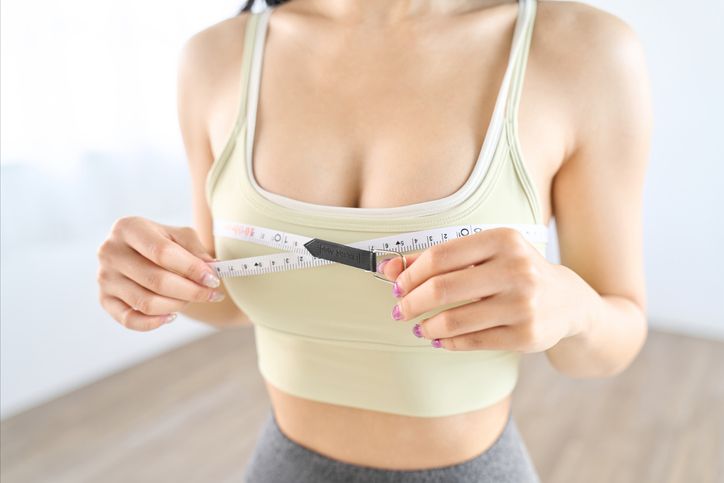
No Need for Routine Implant Replacement
Unlike silicone implants, which often need replacement every 10 to 15 years, fat transfer breast augmentation offers results that can last much longer without planned future surgeries. Once the transferred fat cells develop a stable blood supply and survive the initial healing phase, they become part of your natural breast tissue.
This means you won’t have to schedule periodic replacements or worry about aging implants. There’s also no risk of complications linked to silicone gel, such as implant rupture or leakage, which can require urgent corrective surgery.
Fat Survival Rates and How Results Change Over Time
In the first few months after surgery, your body reabsorbs a portion of the transferred fat—this is normal. Most patients retain about 60 to 70 percent of the fat, and this stabilized volume becomes your long-term result. The remaining fat cells continue to behave like any other fat in your body, responding to weight gain or loss.
To protect the transferred fat, it’s important to maintain a steady weight after the procedure. Sudden weight loss or intense exercise that burns body fat may also reduce the fat cells in your breasts. Regular follow-ups with your plastic surgeon help monitor changes and determine if any touch-ups are needed.
Additional Sessions Can Refine Results
If your goal is a more noticeable increase in breast size or fuller shape, your surgeon may suggest a second fat transfer session after your body has healed. This is especially useful for people with limited usable fat in one session or those who experience higher reabsorption rates.
Since each procedure builds on your natural tissue, results tend to remain smooth and balanced over time. With proper post surgery care and stable weight, the enhancements from breast fat transfer can last for many years.
Book Now to Experience
B6 Breast Enhancement Treatment
1 Minute Self-Registration
Date should not be before minimal date

Fat Transfer Breast Augmentation Benefit 7: Lower Risk of Rejection or Allergic Reactions

Your Body Accepts Its Own Fat
Fat transfer breast augmentation uses your own body fat, not foreign materials like silicone implants. This greatly lowers the risk of complications caused by rejection or allergic reactions. Your immune system doesn’t treat the transferred fat cells as a threat because they’re already part of your body.
This makes fat grafting surgery a safer option for people who may be sensitive to synthetic materials or concerned about introducing medical devices into their body. Since there’s no silicone gel, saline, or synthetic shell involved, issues like inflammation, capsular contracture, or implant rupture don’t apply.
Fewer Immune and Scar Reactions
Breast implants can trigger scar tissue buildup or immune system responses, which may lead to discomfort or distort the shape of the augmented breast. In contrast, breast fat transfer creates fewer internal changes because the tissue is natural and more easily accepted by the body.
While minor swelling and bruising can still occur post surgery, these are typical healing responses and not signs of rejection. You also avoid the need for long-term medical monitoring often required with breast implants, such as regular imaging to check for leakage or structural failure.
Fewer Long-Term Medical Concerns
Because the fat used in the procedure is harvested from your own body, the risk of complications like excessive bleeding, wound healing problems, or allergic response is lower. The fat cells that survive the transfer blend into your existing breast tissue, promoting more natural blood flow and better overall healing.

Fat Transfer Breast Augmentation Benefit 8: Customizable Volume Distribution

More Control Over Breast Shape and Symmetry
Fat transfer breast augmentation gives your surgeon the ability to shape your breasts with more precision compared to standard implants. Instead of inserting a fixed-size implant, your surgeon can add small amounts of fat exactly where it's needed to enhance breast shape, fill out uneven areas, or create a smoother contour.
This level of control is helpful for correcting subtle issues like tuberous breasts, asymmetry, or minor volume loss after weight changes or breastfeeding. The fat is gently injected layer by layer, allowing for a gradual build-up that blends with your natural tissue.
Freedom to Target Specific Areas
You’re not limited to predetermined cup sizes or implant shapes. Fat can be added to the upper pole for more lift, the inner breast for better cleavage, or the outer curves for a fuller side profile. The surgeon can also enhance specific parts of the breast while leaving other areas untouched, giving a tailored result that feels and looks more personal.
This method is especially useful for those who want a moderate boost in breast volume without the round, uniform shape that sometimes comes with implants. You can work with your plastic surgeon to define exactly where you want more fullness or better shape.
Achieve Balanced, Natural-Looking Results
The ability to fine-tune breast enhancement with fat transfer means results often look more balanced with your overall frame. Instead of choosing from a limited range of implant sizes, you get a custom outcome that fits your natural proportions. Whether you're aiming for a subtle lift or more noticeable curves, fat grafting allows flexibility while keeping the look soft and natural.
This personalized approach helps achieve not just an increase in breast size, but also better symmetry and shape—all using your body’s own tissue.

Enhance Fat Transfer Breast Augmentation Results with B6 Breast Enhancement Treatment
Boost the Fullness and Firmness of Your Breasts Naturally
While fat transfer breast augmentation increases breast volume using your own body fat, some may notice that the final result can still be affected by factors like skin laxity, breast sagging, or poor soft tissue support. That’s where the B6 Breast Enhancement Treatment comes in—it works alongside breast fat transfer to further lift, firm, and shape the breasts using non-invasive methods.
By improving blood circulation and stimulating collagen production, B6 can support the long-term effects of breast fat grafting. This makes it ideal if you’re looking to enhance the results of breast augmentation surgery without undergoing additional invasive procedures.
How B6 Breast Enhancement Treatment Works
The treatment uses an acupressure machine that targets breast-related acupoints to stimulate hormone activity and collagen growth in the breast tissue. This helps improve elasticity and structure, making the breasts appear fuller and more lifted. The session also includes massage techniques that gently shift body fat from the surrounding areas—like the sides or back—toward the chest, enhancing breast shape and definition.
Advantages of Adding B6 to Your Fat Transfer Recovery
• Improves breast firmness after fat transfer by tightening loose skin and stimulating breast tissue
• Enhances blood flow to support fat cell survival and help reduce swelling and bruising post surgery
• Refines breast shape by centering side-set breasts and lifting sagging areas
• Non-invasive and pain-free, with no downtime or incisions required
• Supports collagen regeneration, helping maintain the soft tissue structure around the injected fat
If you’ve had or are planning a breast fat transfer and want to further enhance the shape, lift, or feel of your breasts, the B6 Breast Enhancement Treatment offers a natural and non-invasive way to get more noticeable results.
Book your B6 session now to support and shape your results after fat transfer breast augmentation.
New Beauty's B6 Breast Enhancement TreatmentBook Now to Experience
B6 Breast Enhancement Treatment
1 Minute Self-Registration
Date should not be before minimal date
FAQ
1. Can fat transfer breast augmentation be combined with smaller implants?
Yes, some patients choose a hybrid breast augmentation, which combines fat grafting with smaller implants. This approach adds structure and volume with implants while using fat transfer to smooth out edges, add fullness to specific areas, and improve soft tissue coverage. It’s a useful option for those who want a more natural look than implants alone can provide.
2. Is fat transfer breast augmentation suitable for breast reconstruction after breast cancer?
Fat transfer can be a helpful technique for breast reconstruction, especially after breast cancer surgery. It allows surgeons to restore breast volume and improve the shape and softness of the chest area without using implants. It can also be used to refine previous reconstruction work or address asymmetry after lumpectomy or mastectomy.
3. Can I get fat transfer breast augmentation if I have very low body fat?
Fat transfer breast augmentation requires a minimum amount of fat to harvest from other areas like the abdomen, thighs, or flanks. People with very low body fat may not be ideal candidates unless there is enough usable fat to safely perform the procedure. In some cases, a surgeon might recommend gaining a small amount of weight or considering alternative approaches.
4. Will the transferred fat cells grow if I gain weight?
Yes, the transferred fat cells behave like regular fat in your body. If you gain weight, the cells in your augmented breast may also increase in size. This can affect the overall breast shape and symmetry. It’s important to maintain a stable weight after the procedure to preserve the results.
5. Is fat transfer breast augmentation effective for correcting tuberous breasts?
Fat transfer can help improve the appearance of tuberous breasts, especially in mild to moderate cases. By adding volume and filling out the constricted areas with gently injected fat, the breast tissue becomes more rounded and symmetrical. In some cases, fat transfer may be combined with a breast lift or other surgical techniques for more advanced correction.
Recommended Articles
COPYRIGHT© NEW BEAUTY MANAGEMENT LIMITED 2026. ALL RIGHT RESERVED.

